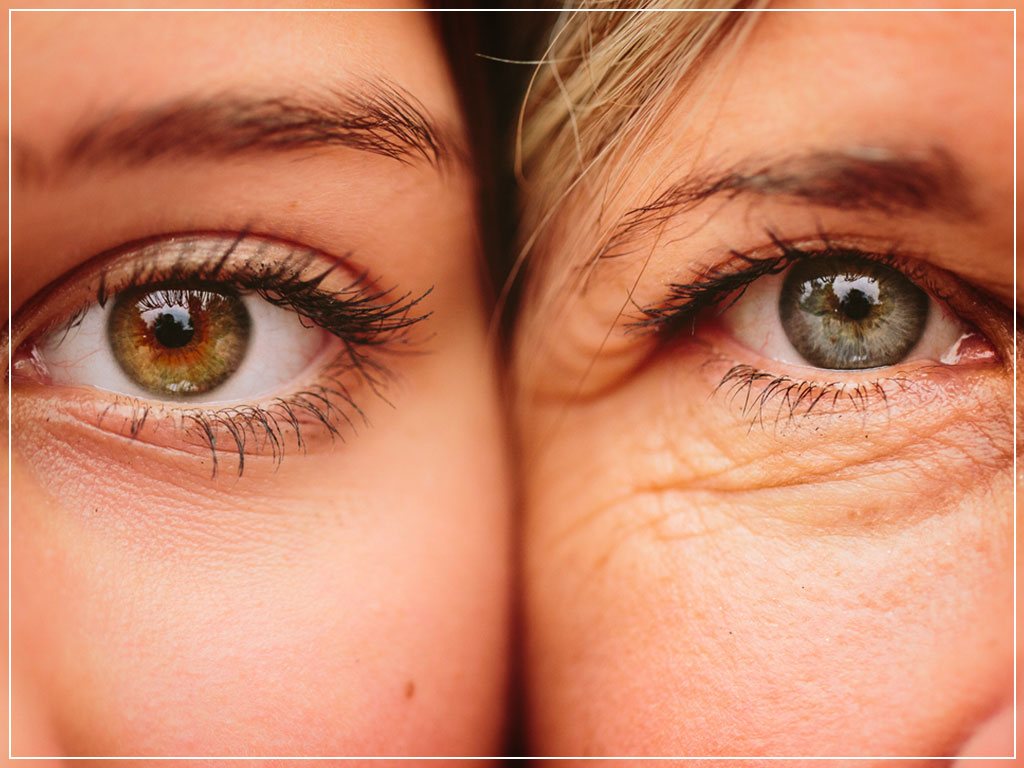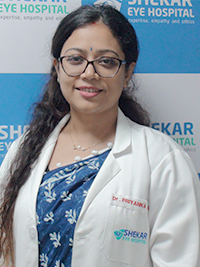As we age, our body undergoes numerous changes, and our eyes are no exception. The retina, a crucial part of the eye responsible for processing light and transmitting visual signals to the brain, is particularly vulnerable to ageing-related issues. Understanding how ageing affects retinal health and taking proactive steps can help preserve vision and prevent severe eye conditions.
How Ageing Affects the Retina
1. Age-Related Macular Degeneration (AMD)
Age-related macular degeneration (AMD) is a leading cause of vision loss in older adults. This condition occurs when the macula, the central part of the retina responsible for sharp vision, deteriorates over time.
Symptoms of AMD:
- Blurred or distorted vision
- Difficulty recognising faces
- Dark spots in central vision
- Reduced color perception
Prevention and Management:
- Eat a diet rich in antioxidants (leafy greens, fish, nuts)
- To follow the treatment offered by the specialist in form of supplements /intravitreal injections( special medications which are injected inside the eye to reduce further damage and maintain vision)
- Avoid smoking, which accelerates retinal damage
- Maintain a healthy lifestyle with regular exercise
- Get routine eye check-ups to detect early signs
2. Diabetic Retinopathy
Diabetic retinopathy occurs when high blood sugar levels damage the tiny blood vessels in the retina. This condition is common among older adults with diabetes and can lead to vision loss if left untreated.
Symptoms of Diabetic Retinopathy:
- Floaters or dark spots in vision
- Blurry or fluctuating vision
- Vision loss in advanced stages
Prevention and Management:
- Control blood sugar, blood pressure, and cholesterol
- Have regular eye exams, especially if you have diabetes
- Follow a healthy diet and exercise regimen
3. Retinal Detachment
Retinal detachment is a serious eye condition where the retina separates from the underlying tissue.
Symptoms of Retinal Detachment:
- Sudden flashes of light
- A curtain-like shadow over the vision
- Increase in floaters
- Blurred vision
- peripheral vision becomes worse
Prevention and Management:
- Seek immediate medical attention for sudden vision changes
- Protect eyes from injury
- Regular eye exams for early detection
4. Posterior Vitreous Detachment (PVD)
Posterior vitreous detachment (PVD) occurs when the vitreous, the gel-like substance inside the eye, shrinks and pulls away from the retina. While PVD is a natural part of ageing, in some cases, it can lead to complications like retinal tears or detachment.

Symptoms of PVD:
- Sudden onset of floaters (small, shadowy shapes in vision)
- Flashes of light in the peripheral vision
- A cobweb-like haze in vision
- Sudden blurriness
Prevention and Management:
- Get regular eye check-ups to monitor changes in the vitreous
- Be aware of warning signs of retinal detachment
- If you notice sudden flashes or a significant increase in floaters, seek immediate medical attention
Lifestyle Habits to Protect Retinal Health
1. Maintain a Healthy Diet
A diet rich in omega-3 fatty acids, lutein, zeaxanthin, and vitamin C can support retinal health. Foods like salmon, spinach, carrots, and citrus fruits are excellent choices.
2. Stay Physically Active
Regular exercise helps improve blood circulation, reducing the risk of diabetes and hypertension, both of which can negatively affect the retina.
3. Manage Screen Time
Prolonged exposure to blue light from screens can strain the eyes. Taking frequent breaks, using anti-glare screens, and blinking often can help prevent digital eye strain.
4. Regular Eye Check-ups
Comprehensive eye exams help detect retinal issues early, ensuring timely intervention to prevent vision loss.
Conclusion
Ageing is inevitable, but vision loss is not. By adopting a healthy lifestyle, getting regular eye check-ups, and seeking timely treatment, you can safeguard your retinal health and maintain clear vision well into your later years.
Frequently Asked Questions
1. What are the early signs of age-related macular degeneration (AMD)?
The early signs of AMD include blurry vision, difficulty recognizing faces, and dark spots in central vision. Regular eye exams can help detect it in the initial stages.
2. How can I protect my retina as I age?
You can protect your retina by eating a healthy diet, avoiding smoking, wearing UV-protective sunglasses, managing underlying health conditions, and scheduling regular eye check-ups.
3. Is retinal detachment an emergency?
Yes, retinal detachment is a medical emergency. If you experience sudden flashes of light, increased floaters, or a curtain-like shadow in your vision, seek immediate medical attention.
By following these tips and being proactive about your eye health, you can reduce the risk of ageing-related retinal diseases and enjoy better vision for years to come.






